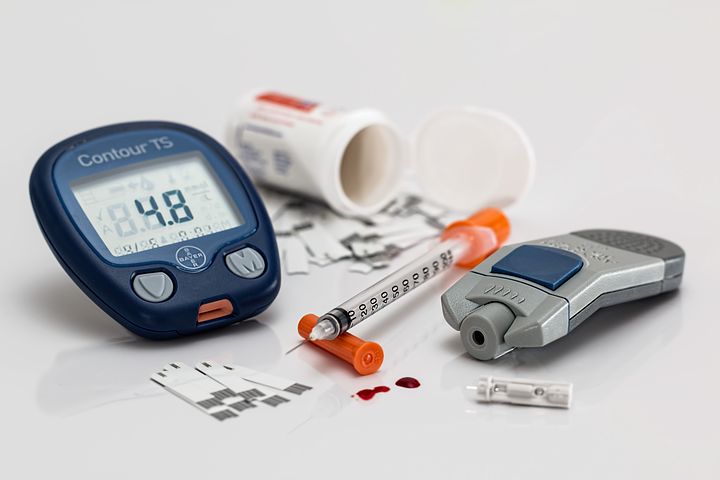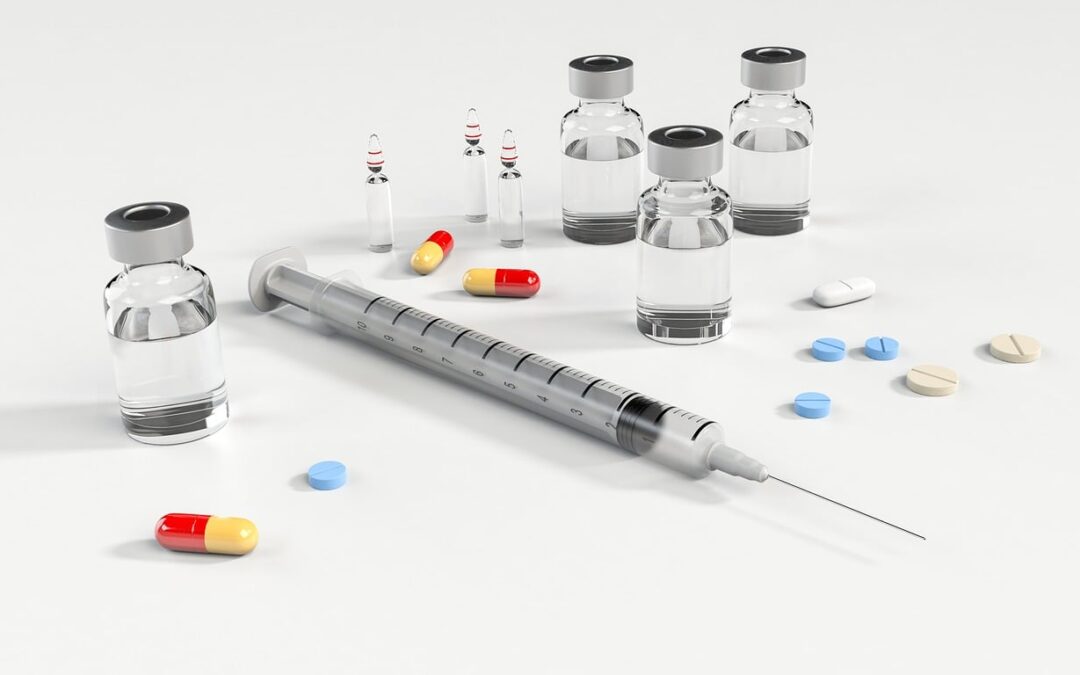Over the last several months, I have been asked my professional opinion on semaglutide (also known as Ozempic and Wegovy). I am not a fan of either of these medications for the sole purpose of weight loss. The risks are too high, and, unfortunately, nutritional advice to help make the necessary changes to keep the removed weight off does not readily come with the prescription. No medication can replace doing the work it takes to change eating and lifestyle habits. Let me share with you some reasons why I feel as strongly as I do about these social-media popularized medications.
Ozempic, Wegovy, and Mounjaro are all injectable medications designed for those with diabetes to help the pancreas produce more insulin to help control the amount of glucose in the blood stream.
During trials, the researchers noted that semaglutide was also able to reduce appetite, which led to weight loss. This is what has created the high demand for this medication. Ozempic and Wegovy (semaglutide) and Mounjaro (tirzepatide) are GLP-1 receptor agonists that mimic the body’s natural GLP-1 hormone released from cells in the small intestine and in smaller quantities by the pancreas and central nervous system to stimulate insulin secretion, regulate appetite, inhibit glucagon secretion and delay gastric emptying.

Semaglutide carries a black box warning from the FDA.

Yes, all medications have the risk of side effects. Some are manageable and others are more serious. When a drug receives a black box warning it has received the strictest and most serious type of warning that the FDA can give a drug. A black box warning highlights a medication’s severe or life-threatening side effects or risks. Once the FDA has given the black box warning, the manufacturer must create a medication guide describing how patients can safely use the drug. These guides come with the medication. However, most people do not take the time to read these guides and often blindly trust the healthcare provider who prescribed them. Sadly, these labels often go unnoticed by doctors. This creates a potentially dangerous possibility of not receiving proper care should something happen while taking a drug with a black box label.
Labels on the diabetes drug Ozempic have now been updated to acknowledge reports of a condition that interrupts the normal function of the intestines in some individuals.
The medication now clearly states that a gastrointestinal disorder known as ileus – a lack of the normal muscle contractions of the intestine that may lead to food/waste not being passed properly through the body – is among some of the adverse reactions reported during post-approval use of semaglutide. Signs of ileus include abdominal cramps, loss of appetite, constipation, and vomiting along with an inability to have successful bowel movements. For anyone with digestive concerns such as IBS, IBD, diverticulitis, etc. this can be a serious side effect as it can worsen symptoms. Both Ozempic and Mounjaro were recently named in a lawsuit filed by a Louisiana woman who accused the diabetes drug manufacturers of failing to adequately warn users that these medications can cause severe gastrointestinal problems, including gastroparesis, which is effectively a paralysis of the stomach and a common comorbidity of those with diabetes.

With obesity and diabetes continuing to rise in the US, nearly half of Americans report being interested in using a safe and effective prescription drug to lose weight. With over 4,000 ad campaigns on social media, celebrities, and news coverage, the marketing is enticing despite the concerns over these new medications. But at what cost?
A study published in JAMA Network Open followed 175 patients taking semaglutide over 6 months. results showed a reduction of 5.9% at 3 months and 10.9% at 6 months. That may seem significant, but if we do the math, a 200-pound person lost only 11.8 pounds in three months and 21.8 pounds in 6 months. For healthy and stable weight loss at about 2 pounds per week with diet and exercise, that same person could have lost up to 32 pounds in three months and 64 pounds in 6 months. Out of 175 patients, almost half (85 patients) reported adverse effects, including gastrointestinal symptoms of nausea, vomiting, diarrhea, and fatigue.
Five patients had to stop taking the drug because the adverse symptoms were intolerable while 15 patients had to reduce or remain on the same dose (instead of increasing per typical protocol) to avoid worsening of the side effects.
In a separate 68-week medical study published by the maker of Wegovy, Novo Nordic, all participants were initially given Wegovy but also instructed to reduce calories and increase physical activity to facilitate weight loss. After 20 weeks, some participants remained on Wegovy and others were moved to a placebo. Those on Wegovy continued to lose weight while those who had been moved to placebo regained much of the weight that they had lost. This indicates that, for most, the weight will likely return when discontinuing the drug, especially if the underlying behaviors and thought patterns around food have not changed.
Losing weight with drugs like semaglutide and trizepatide may come at a price due to the side effects and potential unknown long-term adverse reactions. According to the makers’ websites for each medication, they have all demonstrated a potential increase in thyroid C-cell tumors, including thyroid cancer, in studies with rodents. Whether these medications can cause thyroid cancer in humans is unknown because it has not been studied. In addition to potential thyroid tumors and cancer, these drugs are contraindicated for those with multiple endocrine neoplasia syndrome Type 2.
Other serious side effects include:
Kidney Failure
Inflammation of the pancreas
Hypoglycemia (low blood sugar)
Gallbladder problems
Gastrointestinal disorders
Nervous system disorders
Vision changes
Persistent suicidal thoughts with increased severity with higher doses.
According to the package insert for Wegovy, treatment is associated with an increased risk of acute gallbladder disease, acute pancreatitis, including fatal and non-fatal hemorrhagic or necrotizing pancreatitis. Postmarking reports indicate that semaglutide may cause acute kidney injury and worsening of chronic renal failure. Some cases have occurred in people who did not know that they had underlying renal disease and experienced symptoms like nausea, vomiting, or diarrhea. In a trial with Type 2 diabetic adults, diabetic retinopathy was reported in about 4% of those who received semaglutide. According to Novo Nordisk’s package insert, suicidal behavior and ideation, worsening of depression, and unusual changes in mood and behavior have been reported. Semaglutide affects the central nervous system and must carry a warning for depression and mood changes. However, only Wegovy has followed instructions to do so.
A total of 14,149 adverse events have been reported to the FDA since 2018 in those who have used Ozempic, including 6253 serious cases and 163 deaths A total of 2,201 adverse events, including 460 serious case and six deaths, have been reported to FAERS and attributed to Wegovy since the medication was authorized in 2021.
Fortunately, the clinicians at NeoGenesis can meet you where you are at and help you make those necessary changes to either go along with the medication usage or without it. When you are ready to leap, please give us a call, and we can help with the nutrition and lifestyle changes!

So what do we suggest?
As someone who has struggled with her weight since I was four years old, I understand the feelings of desperation, self-hatred and self-loathing, and the self-sabotage that can result from wanting to lose weight. I even went so far as to swallow bleach at my most mentally-distraught point, trying to get the weight off. There is no quick fix to weight loss, and certainly not one that doesn’t come with massive side effects, some of which are life-threatening. One of my favorite quotes is “You can’t heal a body you don’t love.” I love it so much I have it hanging in my office as a reminder to my clients and, quite frankly, to myself. There are days I still struggle with body dysmorphia. I don’t see what others see. I see my 180+ pound heavier body. When I started my weight loss journey, I was over 350 pounds. I, too, hated what I saw when I looked in the mirror. When we get to a point where we are uncomfortable, this is where change can occur. We have to get to that point and then take an “I mean business” approach to weight loss. It is a complete lifestyle overhaul. I do not eat as I did in my 20s and at my heaviest. I had to relearn how to cook, eat, and make peace with my body. (I still work on that last part daily, so know that it’s a work in progress – always).
Most of us are taught from a very young age to find fault in our bodies instead of looking for all the amazing things our bodies do despite the unhealthy lifestyle choices we make daily for years on end. Hearts keep beating, lungs keep breathing, hormones keep messaging, and the brain keeps thinking. These medications can interrupt many of our bodies’ processes, potentially create illness, and some may lead to death. Each person has to decide what is most important for his/her life. Only you can make that choice for yourself, and now that you have the information from the “dark side” of the weight loss medications, you can make a more informed choice on what you choose to put in your body. Regardless of your choice, there will still be hard work ahead to learn new patterns and behaviors. As my great-granny used to tell me, “Ain’t nuthin in life free.”
Fortunately, the clinicians at NeoGenesis can meet you where you are and help you make those necessary changes to either go along with medication usage or without it. We will personalize a nutrition and lifestyle plan, including protocols, meal plans, recipes, and grocery store tours, to help you achieve your goals in the healthiest way possible.
We believe that all bodies can heal if we put the right foods in, move in healthy ways, fill in nutrient gaps, play, and have a community with loving and supportive others.
When you are ready to leap, please call us, and we can help with the nutrition and lifestyle changes!

Give Us a Call!
To Schedule a session call 253.507.5775
or
Email Admin@NeoGenesisNutrition.com


